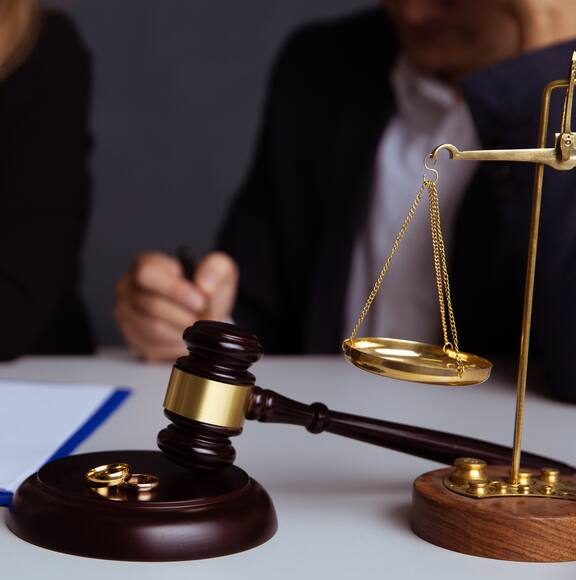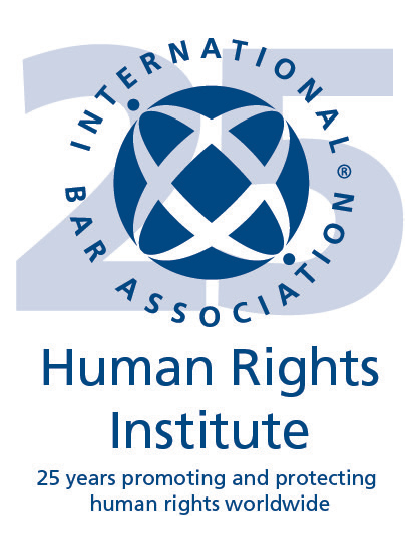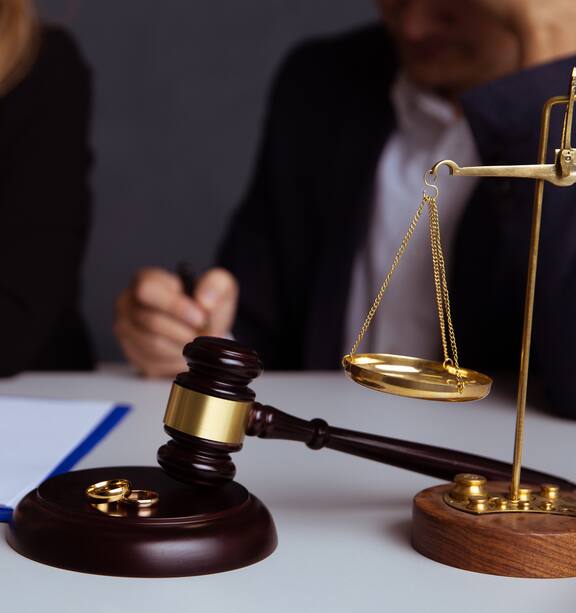The case known to the public as “Adnan Oktar and his friends” has been ongoing for 6 years in the Istanbul 30th High Criminal Court’s file 2019/313 E. (file 2022/158 E. following the reversal decision) with 75 arrested, more than 200 defendants. This is an unprecedented conspiracy case in the history of Turkey, with many illegalities and human rights violations during both investigation and prosecution.
The Dutch Ministry of Foreign Affairs’ 2021 Turkey country report refers to the Adnan Oktar lawsuit and explains that the Turkish court sentenced Adnan Oktar to a prison term of 1075 years ’although there was no primary reason for convicting Mr. Oktar’. The report also states that Mr. Oktar was discredited for his religious and social ideas.
The trial of 20 defendants, including 6 lawyers of Adnan Oktar, took place from 22 to 25 May in Istanbul. In these hearings, the arrested defendants gave evidence, 5 defendants were released, 6 defendants remain in detention, and it was decided that the unarrested defendants, including 6 lawyers, would give evidence on July 10-11-12.
The lawyers who are defendants in the case are:
Atty. Burak Temiz (Istanbul Bar Association)
Atty. Pelin Durmuş (Istanbul Bar Association)
Atty. Sinem Mollahasanoglu (Istanbul Bar Association)
Atty. Tugba Bal (Istanbul Bar Association)
Atty. Ayşe Toprak (Istanbul Bar Association)
Atty. Arzu Gül (Ankara Bar Association)
These lawyers are being tried on the charge of “membership in an organization established for the purpose of committing a crime“. Two of these lawyers were already tried on the same charge after the police operation carried out in 2018.
Among the defendants Atty. Ayse Toprak, Atty. Sinem Mollahasanoglu and Atty. Burak Temiz took the floor and demanded a stay of proceedings because, according to the law, permission of the Ministry of Justice is required for the investigation of lawyers, but this permission was not obtained, and therefore the requirement for a trial was not fulfilled. However, their request was rejected by the court on the grounds that permission for an investigation is required for “offenses arising out of their duties” as per Article 58 of the Attorneyship Law.
Except for the defendant Atty. Arzu Gül, the judicial control to go to the police station on certain days of the week in accordance with Article 109/3-b of the Code of Criminal Procedure was abolished. The justification for this decision was stated as ”their attendance to the hearings”. However, Arzu Gül and the other unarrested defendants were not served with a notice to attend the hearings. In other words, although Arzu Gül was not notified to attend the hearing, her judicial control was not abolished on the grounds that she did not attend the hearing.
In a letter to President Recep Tayyip Erdoğan, the Council of Bars and Law Societies of Europe (CCBE) expressed its concern regarding the criminalization of the advocacy work of the 6 defendant lawyers and requested that the charges against them be dropped.
The International Bar Association Human Rights Institute (IBAHRI) raised its concern about the prosecution of the 6 defendant lawyers in the following article:
In addition, Atty. Nihan Toklu, Atty. Pelin Durmuş, Atty. Tugba Bal, Atty. Ayfer Bayer and Atty. Eşref Nuri Yakışan, who started the main Adnan Oktar case as a defense counsel but is currently in prison, were sentenced to 4.5 years in jail for “membership in an organization established for the purpose of committing a crime“. According to the Attorneyship Law, lawyers cannot practise their profession if they are sentenced to 2 years or more for an offense. Since these lawyers have been sentenced to 4.5 years, their relations with the Istanbul Bar Association will be severed in the coming days. That means they will not be able to practice law.
During almost the entire 6 years of Mr. Adnan Oktar’s imprisonment, the restriction of access to a lawyer has been imposed in violation of the law. During this period, Mr. Adnan Oktar’s meetings with his lawyers have been conducted in the presence of prison officers, recorded on camera. The documents brought by his lawyers for his own defense have been confiscated by the prison and their delivery to the defendant has been delayed. These violations of attorney-client confidentiality were further escalated during Adnan Oktar’s stay in Erzurum when Furkan Sezer, the former Chief of the Financial Branch of the Police Department, who carried out the operation against this group on July 11, 2018, said, “There are dark clouds hanging over the Erzurum Bar Association”, which put the Erzurum Bar Association under suspicion. This was intended to intimidate the lawyers at the Erzurum Bar Association. The aim was clear: to leave Adnan Oktar without a lawyer and to crush his defense. Later, the Minister of Justice made a statement saying that these allegations would be investigated. Then, right after Erzurum, Mr. Adnan Oktar was transferred to Van Prison, the easternmost prison in Turkey. Here the restrictions reached their peak. Interviews were conducted with two prison officers sitting on the right and left of the lawyer, under the surveillance of 3 cameras – one of which was placed between the lawyer and the client in such a way as to obstruct the view.
The indictments related to Mr. Adnan Oktar’s trials in the month of May were confiscated by the Van Prison Directorate and not delivered to him. Even the documents he had prepared for his defense were seized by the prison administration. As a result of these practices, Adnan Oktar was obliged to make his defense in his trials, which started on May 20, without having read the indictment against him.
Although under normal circumstances, according to Article 154 of the Turkish Code of Criminal Procedure, the suspect or accused whose trial is ongoing has the right to meet with his lawyer at any time, Adnan Oktar could meet with his lawyer only 3 days a week and during working hours. For example, on a 9-day public holiday, he was unable to see his lawyer at all.
This restriction was objected to by Adnan Oktar’s defense lawyers, who submitted legal opinions from Turkey’s leading law professors, stating that the restriction was imposed in violation of the law.
Nevertheless, the court decided to continue the restriction, to extend the order on audio and video recording of his meetings with his lawyers, and to seize all documents exchanged and ensure that prison officers are present during his meetings with his attorneys, as well as limiting the days of the lawyers’ visits.
We would also like to mention the case of lawyer Eşref Nuri Yakışan, who was a defense lawyer in the Adnan Oktar case and is currently serving a sentence in Salihli T Type Prison. Upon the complaint of the panel of judges who heard the case in which Eşref Nuri Yakışan was acting as defense counsel, in violation of Article 30 of the Criminal Procedure Code, he was prosecuted by the same panel of judges who filed the complaint. Despite the fact that this situation would cast a shadow on the impartiality of the judges, he was sentenced to 4 years and 6 months in prison for membership of a criminal organization and 3 years in prison for “threatening” a complainant lawyer by conveying Mr. Adnan Oktar’s greetings to her.
Later, the Regional Court of Appeal stated that the verdict of acquittal should have been given on the charge of threatening, and also reversed the verdict on the charge of being a member of a criminal organization on procedural grounds. The Court of Appeals released Esref Nuri Yakisan along with other 67 defendants.
However, a terrible smear campaign was launched against the judges of this Court of Appeals who ordered the release, an investigation was opened against them, and they were demoted from the Regional Court of Appeals and were appointed as plain judges.
Subsequently, the local court, in violation of Article 284 of the Criminal Procedure Code (which reads “The decisions and provisions of the regional court of appeal cannot be resisted; No legal action can be taken against them.”), resisted against this ruling and imposed the same sentence.
The judges of the Regional Court of Appeals were replaced by new judges and were thus prevented from hearing the case a second time. Instead of them, Tamer Keskin, who had previously testified in the investigation against these judges and stated that the sentences in the Adnan Oktar case should be upheld, took part in the second appellate review. This time, the Court of Appeals with a new panel of judges upheld all the sentences, including Esref Nuri Yakisan’s sentence of 7.6 years. This decision became final. He has been in prison for 28 months and his sentence will expire in February 2026.
His application to the Constitutional Court (the highest court in Turkey) on the violation of his right to a fair trial by an independent and impartial court as well as the violation of the principle of natural judge and equality of arms has been rejected. He will apply to the ECHR in the coming days.
We wanted to briefly explain to you how the rights of lawyers have been restricted in the Adnan Oktar case. We also wanted to describe the schemes played by the complainants and hostile circles in order to leave the defendants without a lawyer, and how defense lawyers can easily be declared as “members of a criminal organization” on the grounds of “misconduct in their duties as lawyers” while they have merely done their duty. In the coming days, (July 10-12) 6 defendant lawyers will stand before the judge.
We will continue to inform you about the developments in our case. We kindly ask you to follow the issue. Having the support of international institutions is of great importance for us. That is because it would mean that the injustice the defendants subjected to and the violations of their fundamental rights will not be tolerated and that would inevitably help the rule of law prevail.







